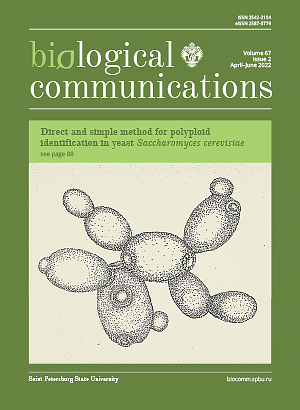Role of the MBP protein in myelin formation and degradation in the brain
DOI:
https://doi.org/10.21638/spbu03.2022.206Abstract
The compact myelin sheath functions as an insulator for efficient conduction of nerve impulses. The formation of myelin sheaths around the axons of the most actively functioning neurons continues not only at the stage of brain development, but also in the process of learning and acquiring certain skills. Pathological or age-related disruption in myelin results in nerve conduction failure and neurodegeneration. Myelin Basic Protein (MBP) is the main constituent of the myelin sheath, representing about 30 % of the total myelin proteins in the central nervous system. Deletion in the MBP coding gene in mutant mice causes a severe neurological phenotype associated with rapid death of newborns. In this review, we discuss the current understanding of the role of the MBP protein in the formation of compact myelin and in neurodegeneration associated with demyelination.
Keywords:
myelin, MBP, multiple sclerosis, oligodendrocyte, axon, mammalian brain, amyloid
Downloads
References
Downloads
Published
How to Cite
License
Articles of Biological Communications are open access distributed under the terms of the License Agreement with Saint Petersburg State University, which permits to the authors unrestricted distribution and self-archiving free of charge.





